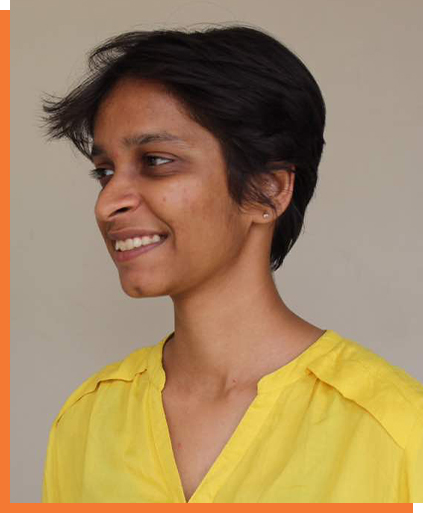TA Testimonials
TA Testimonials
Vedica believes having teaching assistants (or TAs) in the classroom is critical. Their importance has been proven with the adoption of the digital mode of learning. Our TAs are key to the smooth functioning of a virtual classroom. From taking doubts, upskilling our professors with technological tools and acting as an interface between the cohort and the faculty, our TA's do it all.

The Vedica ecosystem--the scholars, the faculty and the team--has wholeheartedly embraced the hybrid model. Without exception, our faculty have now smoothly adapted to online delivery. As a TA, the best I can do for them is take care of administrative work and grading.
Our scholars have formed their own community behaviours and etiquette. They are adaptive to various faculty and teaching styles, speaking in participation-based classes and using the chat in lecture-based classes. The team has been extremely proactive in solving any issues that they encounter.
Common issues that appear include tests/quizzes given during already hectic weeks, for which a common calendar is used to coordinate between TA's and evenly distribute the term load.
Being a TA at Vedica this past couple of months was challenging and equally exciting as we adapted constantly to make virtual learning effective. With the shift to online, my role as a TA altered, particularly concerning classroom space. Summarising key points, sharing books and articles mentioned by faculty in class, in the zoom chat box, kept Scholars engaged in the session. We worked on the virtual class pedagogy with the faculty to include audio-visual content, interactive tools like polls, quizzes, and jamboards and modifying the one-way lecture format into an interactive learning process.
One of the key challenges in remote learning was the lack of peer interaction. Breaking scholars into small rooms for in-class activities facilitated a sense of belonging. For assessment, the TA worked with faculty on incorporating different forms of assessment. A balanced mix of group and individual assignments worked great for courses like Design Thinking. Engaging with batchmates work is a key learning curve, and we organised group presentations on Zoom with the entire cohort.
In my experience, it was a shift from viewing online solely as compensation for in-person learning to recognising the potential it has for a different learning experience.


Vedica's transition from offline to an online classroom has been one of the most successful transitions that I have ever seen. One of the key attributes to the success being, increased commitment of our stellar faculty towards their students. This was made possible with the help of modes like office hours, email exchanges as well as post-class discussions. Additionally, many instructors who may have held onto the traditional model of lecture are now open to the technical capabilities of the visual platform.
Other tools such as breakout rooms also help in retaining the prevalent discussion spaces that the classroom signifies. TAs at Vedica go out of their way to preserve these discussion spaces, even if it means scheduling extra hours to maintain this kind of forum. At Vedica, we whole-heartedly believe that learning is a two-way process.
While one surely misses the intimacy of offline classes, online classes come with their own set of challenges and delights. Adapting courses to the online mode requires careful thought and intelligent planning. At Vedica, theoretical courses, such as Market Research, are balanced with experiential activities, and activity-driven courses are supported with the traditional lecture-based learning. The faculty, in turn, has been extremely receptive to feedback—modifying the course content and pedagogy as and when needed.
The online medium also offers certain advantages. Tools such as Zoom Polls and Jamboard make it easier to track student learning. Breakout rooms increase the efficiency of administering group activities, saving just enough minutes for that one extra question that might have gone unanswered otherwise. Dividing the cohort into sections has also been helpful in this regard, ensuring that adequate attention can be devoted to every scholar.




